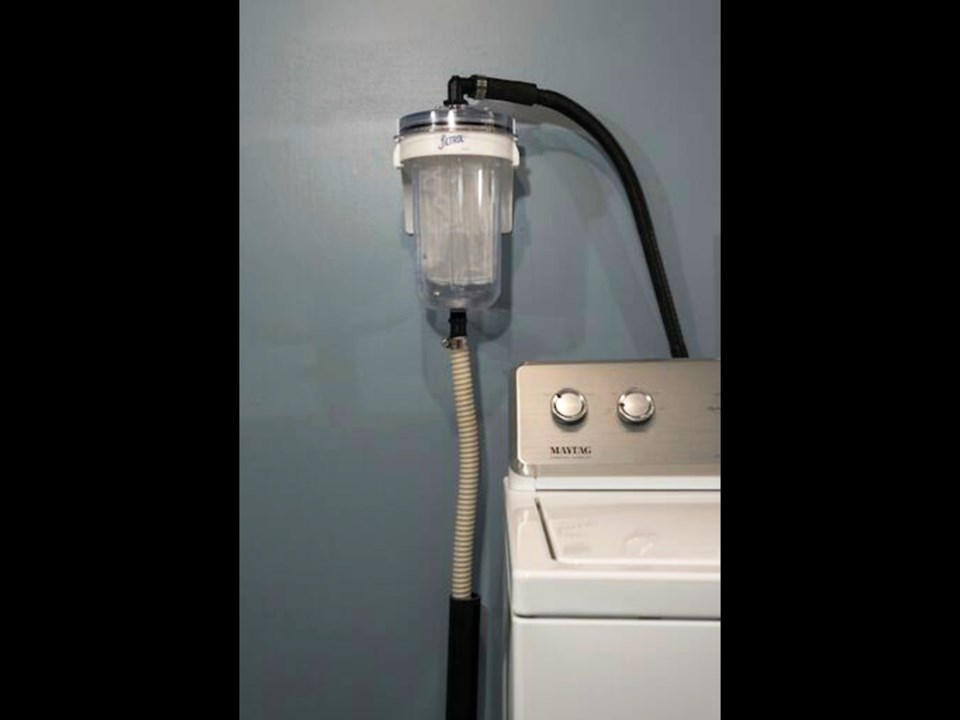Microplastics are making their way into Georgian Bay and a local environmental charity is looking for a few Collingwood households to participate in a pilot project to divert microfibres from reaching the bay in the first place.
Environmental charity Georgian Bay Forever is expanding its Divert and Capture program, where it is installing free filtering devices to washing machines in about 300 Collingwood households as part of the project to study microplastics.
“Critical change is needed to washing machines, washing habits and clothing purchase decisions that are polluting freshwater and marine environments,” said Georgian Bay Forever’s executive director, David Sweetnam. “Microfibres are being found in the guts of hundreds of species worldwide.”
“In animals, these pollutants interfere physically and chemically with feeding behaviour and growth. In humans, we just don’t know what the long-term effects are yet,” he added.
To qualify to participate, individuals must be on Collingwood town water year-round, have space for the filter near the laundry machine, and be an active participant in the study. This would include collecting and storing the microfibres for collection every four to six months, along with completing the occasional survey or answering questions.
The filters work by connecting to a laundry machine to collect the effluent microfibes, before going to the wastewater treatment plant. Microfibres are the most common form of microplastics in water.
According to a release from Georgian Bay Forever, based on global clothing buying habits, 60 per cent of clothes are made from plastic, with various concerning rates of shedability.
Preliminary findings from a Georgian Bay Forever study in Parry Sound from about 100 households demonstrated those 100 filters could be effective in removing up to six million microwaste fibres daily from getting into Georgian Bay.
Georgian Bay Forever came before council with their request to use town resources to help with the study last year. For our story on that, including more information on the program, study and microplastics, click here.
For more information about participation in the pilot project, contact Brooke Harrison at [email protected].



